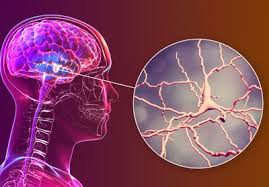Parkinson’s Disease, a neurological disorder affecting millions worldwide, has long been a challenge for both patients and healthcare professionals. But today, there’s a glimmer of hope as innovative technology and treatment options offer promise in managing this condition.
Parkinson’s Disease is a progressive disorder of the nervous system that affects movement. It’s characterized by symptoms such as tremors, stiffness, slow movements, and difficulty with balance and coordination. These symptoms can vary from person to person and often worsen over time.
While there is currently no cure for Parkinson’s Disease, various treatment options are available to help manage symptoms and improve quality of life for patients. These may include medications, physical therapy, and lifestyle modifications. In some cases, surgery such as deep brain stimulation (DBS) may be recommended to alleviate symptoms.
One exciting advancement in Parkinson’s treatment involves the use of innovative technologies. Deep brain stimulation (DBS), for example, is a surgical procedure that involves implanting a device similar to a pacemaker in the brain. This device delivers electrical impulses to specific areas of the brain, helping to regulate abnormal brain activity and reduce symptoms such as tremors and stiffness.
Parkinson’s Disease can affect people of all ages, but it most commonly develops in individuals over the age of 60. However, it’s essential to note that younger people can also be diagnosed with early-onset Parkinson’s Disease, which typically occurs before the age of 50.
As research and technology continue to advance, there is growing optimism in the Parkinson’s community. New therapies and treatment approaches are being developed, offering hope for improved outcomes and better quality of life for patients.
On World Parkinson’s Day, Mr. Rajinish Menon, CEO & Founder, Sukino Healthcare Solutions shared, “As a continuum care provider focused on supporting people with chronic illnesses, we understand the complexities of Parkinson’s disease. On World Parkinson’s Day, we stand with the individuals and families affected by this challenging condition.”
He continued, “More than 10 million people worldwide are living with Parkinson’s disease. India alone shares almost 10% of the global burden of Parkinson’s disease. This debilitating disease doesn’t just affect the individual but also their loved ones. Yet most treatments are limited in their scope. Providing holistic, personalised care is key to managing symptoms and improving quality of life. With services ranging from medication management to emotional support, continuum care can ensure that Parkinson’s patients and their families receive the help they need to lead a fulfilling life.”
“On this World Parkinson’s Day, let’s come together to raise awareness and advocate for better care. Let’s aim to empower those with Parkinson’s to live their best lives and work to improve health outcomes and overall well-being for patients and their families.”
Living with Parkinson’s Disease can be challenging, but support and resources are available to help patients and their families navigate the journey. Support groups, educational programs, and advocacy organizations play a crucial role in providing information, guidance, and emotional support to those affected by Parkinson’s.
Parkinson’s Disease may present significant challenges, but with ongoing research, technological advancements, and a supportive community, there is reason to remain hopeful. By raising awareness, advocating for better treatments, and continuing to invest in research, we can work towards a future where Parkinson’s Disease no longer poses a threat to those affected by it.











